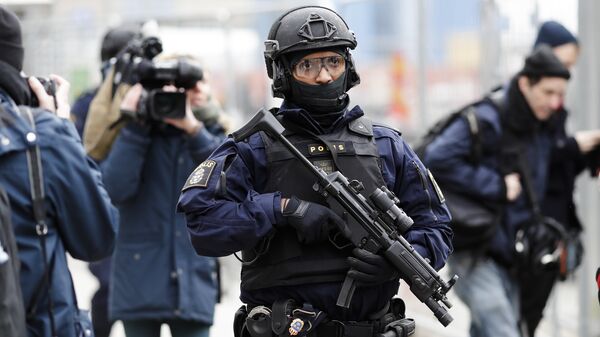Eleven people have been shot dead in Stockholm alone so far this year. This is as many as the whole of 2018. Throughout the country, 23 people have been shot dead in the first half of 2019, which exceeds last year's record.
According to Chief of Police Anders Thornberg, this is the new normal.
Despite assuring his compatriots that the police's capacity to handle criminal gangs will improve owing to staff expansion in the coming years, he doesn't believe that the police will be able to “crack down” on the gangs, as Prime Minister Stefan Löfven earlier promised.
Instead, Thornberg called for Swedes to get used to violence in the years to come.
“This may continue for five to ten years in these particularly vulnerable areas”, Anders Thornberg told the newspaper Aftonbladet, using the popular euphemism that has replaced the term “ghetto” in political and media parlance.
According to Thornberg, the shootings are closely linked to drug trafficking.
“It's about drugs too. Drugs are deeply rooted in the community and it is ordinary people who buy them. There is a market, and the gangs are fighting for it. Much is about drug trafficking”, Thornberg explained.
According to him, all of Swedish society must contribute to stopping serious crime.
“In the long run, it is a vital issue for Sweden to crack this trend. It will have consequences you commit crimes when young. From the police side, we cannot solve this overnight. We want all the good forces in society to do their job”, Thornberg said.
This past Sunday, Stockholm alone saw three different shootings in a matter of four and a half hours, prompting strong condemnation.
“We have an acute security crisis. There were three different shootings in Stockholm this Sunday. Just talking about leisure centres doesn't help anymore”, Moderate party legal spokesman Johan Forsell told Expressen.
Forsell predicted that this development will escalate.
“Society is becoming increasingly raw. In June, there were 41 shootings in a single month, which is a new record. Unfortunately, I believe we will see even more of them”, Forsell ventured.
The number of shootings in Sweden has increased exponentially in recent years, which the police attribute to gang conflicts in “particularly vulnerable areas”, that is areas marked by urban blight, immigration, unemployment, and rampant crime. According to a report by the National Operational Department, residents in such areas are often too terrified to turn to the authorities for fear of retaliation.
A 2019 police report listed 60 “vulnerable areas”, with many of them sharing an overwhelming percentage of non-Swedes, such as Stockholm's Alby, Fittja and Rinkeby or Örebro's Vivalla, where up to 90 percent of residents are of immigrant descent. Several Swedish politicians condemned the publication of such lists, calling this practice “stigmatisation” and urging to abandon it altogether.


